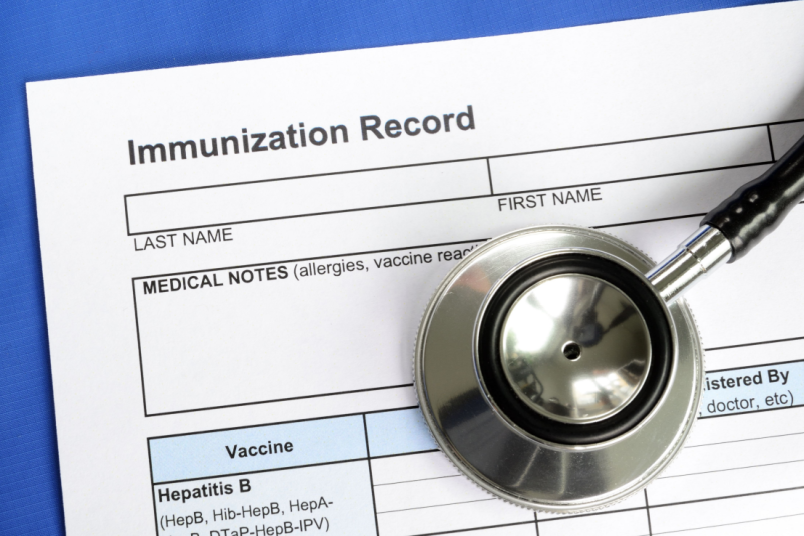Becoming a parent or the arrival of a newborn into your family can be a joyous occasion. It brings with it immense happiness and also loads of responsibility as the neonate requires special care and handling. A neonate is an infant who is 4 weeks or younger. Neonates are also called newborn and the neonatal period is the first 4 weeks of a child’s life. This is a crucial period for the survival of the baby as he/she is developing immunity to fight against various diseases and infections.
Need for vaccination
Often the immunity is present in the child from the antibodies received from the maternal blood while still in the womb. After birth, the mother’s milk provides crucial immunity to the child. However, these alone are not sufficient to offer adequate protection to the child. Thus, there is a need for proper immunization and following a vaccination schedule as advised by your healthcare provider.
Types of vaccines
There are several types of vaccines available in the market for neonates. Some of these are briefly described below:
Attenuated or weakened live germs:
- These include vaccines for measles, mumps, and rubella (MMR) and chickenpox vaccine.
Killed or inactivated germs:
- These are present in some vaccines, such as in the flu shot or the inactivated poliovirus vaccine.
Toxoid vaccines:
- Toxoid vaccines contain an inactivated toxin, which is a harmful chemical made by the germ. Classic examples of this type of vaccine are the diphtheria and tetanus toxoid vaccines.
Conjugate vaccines:
- Such vaccines contain small pieces of the germ, combined with proteins that help trigger a strong immune reaction (response). Most of the commonly used vaccines are developed this way, including vaccines against hepatitis B, whooping cough, HPV, and meningitis.
mRNA (messenger RNA) vaccines:
- These vaccines make use of a part of the germ’s genetic material i.e. RNA. Example: COVID-19 vaccines.
Vaccines for neonates
At Birth
A. Bacillus Calmette Guerin (BCG):
This is a single dose vaccine, injected on the upper arm. It offers protection against tuberculosis (TB). Potential side effects of this vaccine are:
Soreness or discharge at the site of injection
Swollen glands under the armpit on the arm where the vaccine shot was administered
B. Oral Polio Vaccine (OPV)–0 Dose:
This is the first dose given at the time of birth. It is administered orally. This vaccine offers protection against the polio virus, a highly infectious disease affecting the nervous system, often causing total paralysis. The virus affects children who are 5 years old or younger. There are no potential side effects of this vaccine.
C. Hepatitis B birth dose:
This is administered via injection. This vaccine fights against Hepatitis B which is a viral infection, attacking the liver and leading to both acute and chronic diseases. This vaccine too does not have any potential side effects, other than some redness or soreness at the site of injection. This vaccine is an example of an inactivated (dead) vaccine and thus, cannot cause the infection itself.
Helpful tips for vaccination
By keeping the following practical tips in mind, you can make your child’s immunization journey smooth and hassle-free:
Common side effects observed due to vaccines include swelling at the site of injection, soreness, redness, and fever. Discuss these potential side effects with your healthcare provider and seek advice on when to visit them.
Getting your child’s vaccination schedule in an immunization registry often helps, especially if you have lost the vaccine records.
Ask your healthcare provider’s office if they have a provision for an immunization reminder or recall system. This way you would know when the next vaccines are due.
Bring the immunization record with you during each hospital visit and get it signed and dated after each immunization.
Important reasons to vaccinate your child
Vaccinations can save your child’s life.
Vaccines are very safe and effective.
Immunizations protect others you care about.
Vaccinations can save time and money.
Immunizations offer protection to future generations.
Vaccines are a safe and effective method against a host of diseases. However, they should be administered at the right age and recommended dosage. For instance, polio affects children below the age of 5 years. If you have a child below 5 years, it is best to give him/her the polio vaccine to protect your child from harm caused by the disease.
KM NU hospitals is the best pediatric multispecialty hospital in Ambur. The pediatric care offered to neonates is by far the most advanced and superior in terms of advanced treatments, including vaccinations. If you have a neonate, it is advisable to get him/her vaccinated against the common diseases that affect neonates. So, get your newborn vaccinated today without further delay.
References:
Five important reasons to vaccinate your child. U.S. Department of Health and Human Services. https://www.hhs.gov/immunization/get-vaccinated/for-parents/five-reasons/index.html. Accessed on 10 October 2023.
Know your child’s immunization schedule. UNICEF India. https://www.unicef.org/india/know-your-childs-immunization-schedule. Accessed on 10 October 2023.
What every parent should know about immunizations. Stanford Medicine. https://www.stanfordchildrens.org/en/topic/default?id=what-every-parent-should-know-about-immunizations-1-1750. Accessed on 10 October 2023.
Your child’s immunizations. NEMOURS KidsHealth. . Accessed on 10 October 2023.
Author : Dr. Palanirajan P





